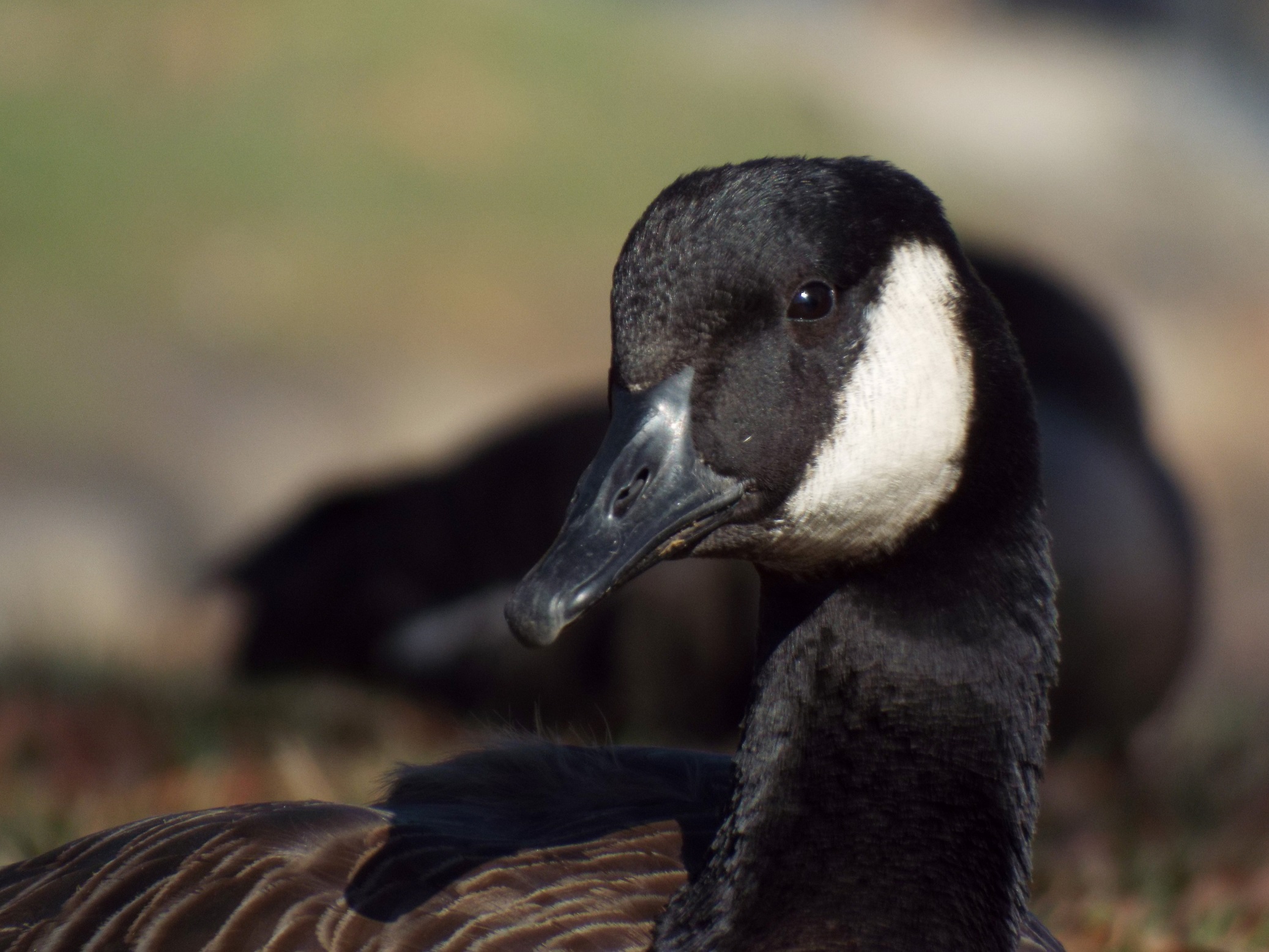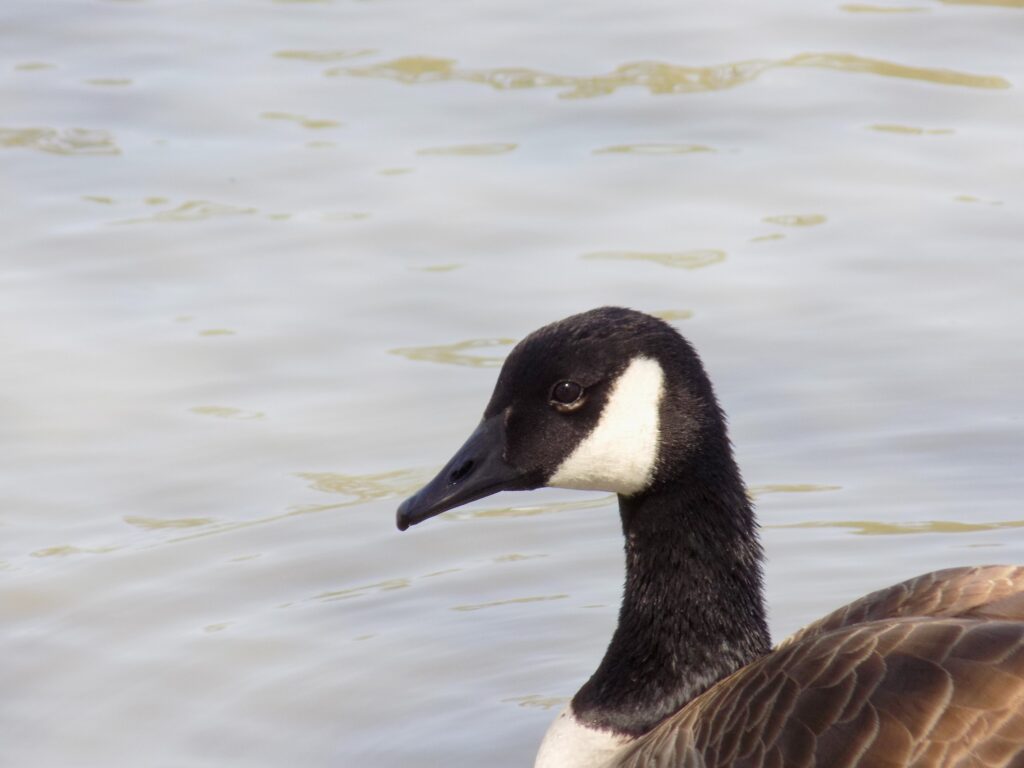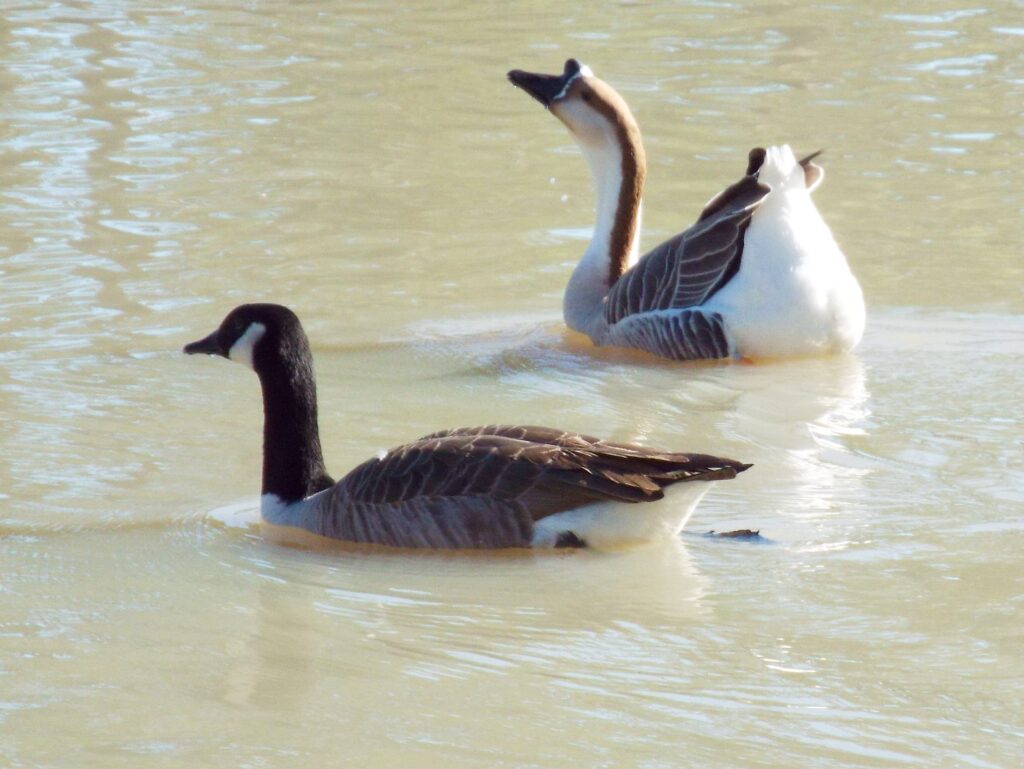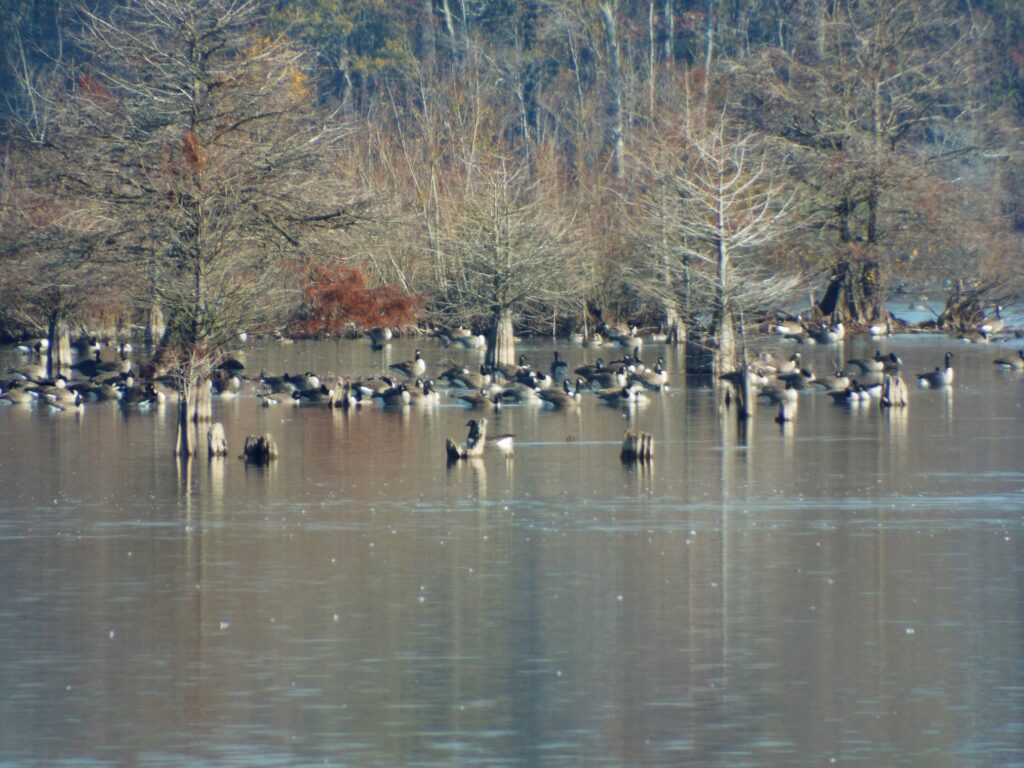




This week for Flora and Fauna Friday, it’s the haughty honkers who herald the holidays: the Canada Goose (Branta canadensis).
Fall in the Lowcountry is a mysterious thing. One day the temperature dips into the 40s and the next week it’s in the 80s again. Some trees turn a bit yellow for a week, others put out new leaves before they finish dropping their old ones, others stay green forever, and some just down turn brown until March. Before you know winter arrives and there never seems to have appeared an autumn. Yet, one beast makes their presence known to signal that the change of season is complete, the Canada Goose.
The Canada Goose is by far our most populous goose here in the Southeast. Their range extends throughout much of the United States and they can be found practically anywhere in South Carolina. They’re a large bird, standing about hip high and weighing 10-15lbs. Canada Geese have a plumage of blacks, whites, and dull browns. A black bill and black eyes upon a black head and neck, broken-up only by a snow-white beard, swoops down to a pale-khaki breast which slowly steps through thin streaks to a muted-brown flank below wings and mantle of the same shade. Beyond the brown wings are their black wingtips and beyond the brown flank is an egg-white rump. Beneath it all it is the support of two sturdy black legs on broad webbed-feet. Canada Geese generally travel in flocks but can often be seen in just as a pair. They may be found in practically any open body of still freshwater from lakes and ponds to borrow pits and golf course water hazards. However, Canada Geese are not restricted to the water and they spend much of their time on land. Canada Geese eat vegetation and can often be found on farm fields, pastures, lawns, and the like plucking grass and swallowing seeds.
This leads us to something interesting about Canada Geese here in the Lowcountry. We actually have two distinct populations here in the winter. One population migrates south from Canada, the Midwest, and the northeast and their populations can predominantly be found in huge numbers on the lakes of the midlands and other secluded waterfowl habitats of the state during only the winter. Conversely, we have non-migratory Canada Geese who spend their whole lives within South Carolina, moving about their local area seasonally. These local resident Geese are the ones we see the vast majority of the time and the ones found in urban and residential areas upon retention ponds, borrow pits, and water hazards and meandering through parking lots, housing developments, airports, and golf courses.
These resident Geese can actually become major nuisances not just by hissing at unsuspecting pedestrians or foiling fastidious landscapers but also by degrading local water quality and preventing safe aviation. The most obvious big issue Canada Geese present is that a flock of 15lb birds flying into a jet turbine generally does not result in a favorable outcome for either party. So airports go through great efforts to keep Geese out of airport retention ponds and off of runways. What’s a little less obvious is that Geese can be a massive issue for local water quality. Geese eat a lot of grass, like to swim around in small ponds, and don’t like alligators or walking around in tall grass. We humans love to surround small, mostly alligator-free ponds with lush, short grass. So ponds in residential or urban areas are a perfect habitat for packing as many Canada Geese into a small space as possible. This also means that a lot Goose poop ends up in those ponds through run-off, or more direct means. This can quickly turn an otherwise functional and ecologically healthy retention pond into a cesspool which, instead of sequestering contaminants, now becomes a source of bacterial pollution flowing into our waterways. A few Geese is usually not an issue but dense populations can become harmful very quickly. Proper pond and landscape management is required to discourage Geese from overpopulating these areas and the SC-DNR has plenty of resources on how to better manage ponds to control geese.